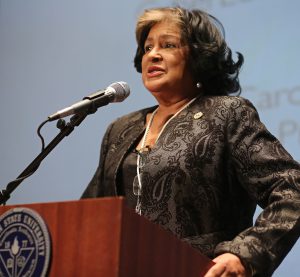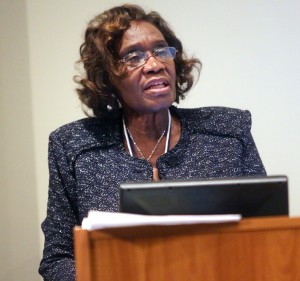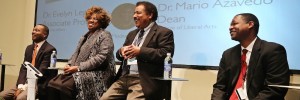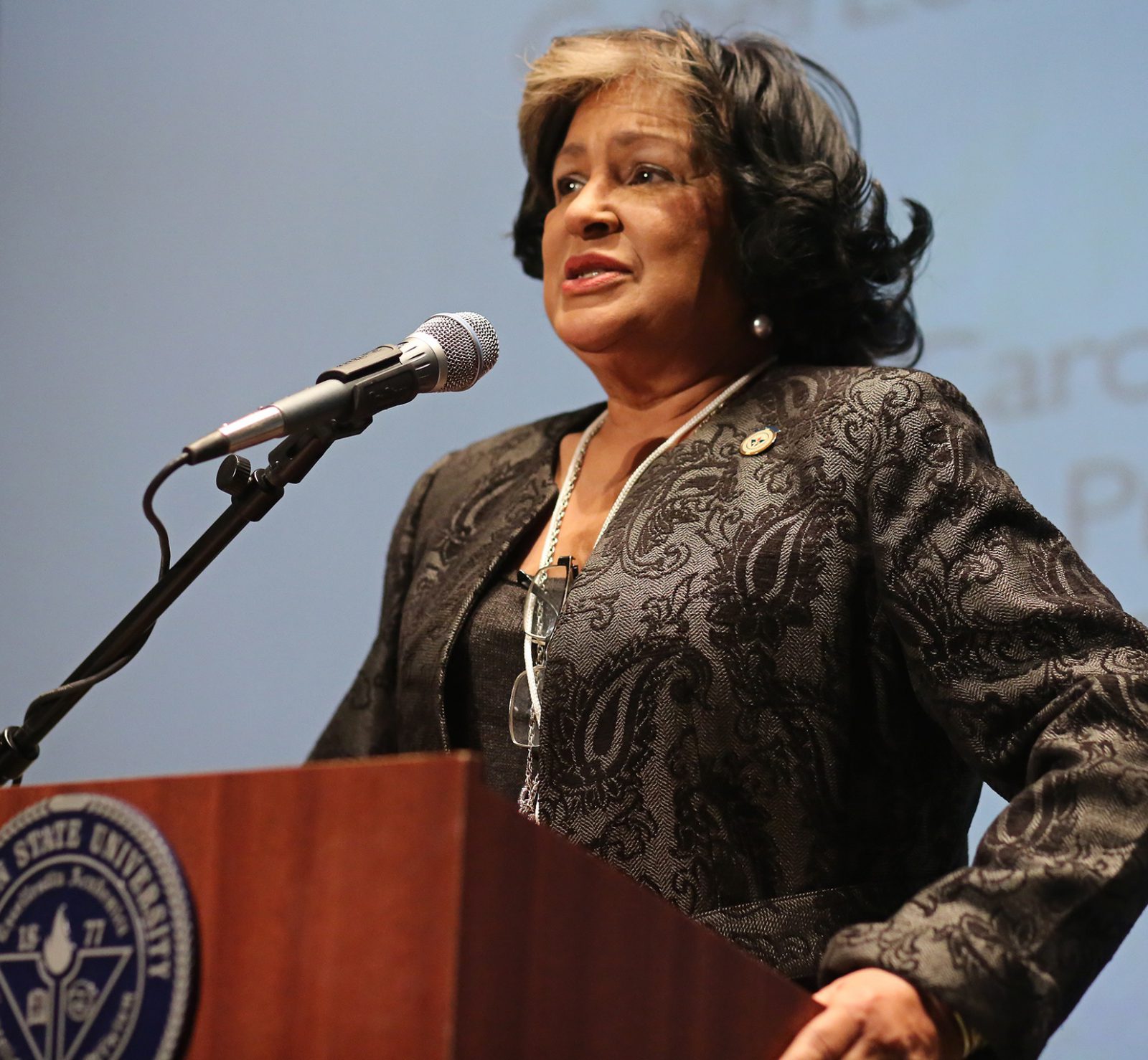“We must push the boundaries to enhance effective learning,” President Carolyn W. Meyers said Thursday in welcoming educators from around the country to Jackson State University’s 3rd Annual CyberLearning Summit.

Speaking at the JSU Student Center, Meyers stressed that only by embracing cutting-edge technologies can educators truly do the job of producing the leaders needed for the rest of the 21st century.
“We want to use technology as an enabler of learning,” said Dr. James C. Renick, provost and senior vice president for Academic and Student Affairs, in explaining how JSU came to be recognized as a leader in cyberlearning.
People in technology are among the most creative on the planet, Renick said to applause from the audience. But, he added, JSU recognized that “we need to have a process — or processes — that translates creativity to innovation.”
That process, he said, requires people, tools and ideas.
Renick said that Meyers laid down a mandate for the “relentless” pursuit of achieving 21st century excellence in the classroom. Just as excellence in medicine is synonymous with Johns Hopkins University, the goal was to make JSU synonymous with academic excellence through technology.
Renick recounted the achievements JSU has accomplished in only a few years, including being named an Apple Distinguished School, only one of a handful in the nation.
Faculty were involved from the beginning, he said, turning teaching from “the sage on the stage, talk and the chalk” to digitalizing textbooks, issuing every incoming student with an iPad and turning the entire campus wireless.
Pointing to Dr. Robert Blaine, leader of the conference who only recently was named dean of Undergraduate Studies and CyberLearning, Renick said that Blaine’s new post is a deliberate strategy to inject cyberlearning into the heart of the institution.
The conference’s first day began with JSU’s history as a cyberlearning leader in three parts: with Renick speaking about its foundation; Blaine as the architect of it; Dr. William McHenry, executive director of the Mississippi e-Center @JSU, as the foundation engineer; and Dr. Deborah F. Dent, vice president of Information Technology and chief information officer, as the cyberinfrastructure engineer.

Blaine explained for the 120 educators enrolled in the summit the specific steps and vision used in reconfiguring the university’s library and facilities into learning systems using the latest in technology.
“People get caught up in the shiny device,” he said. “It’s not the device, it’s the curriculum that’s delivered through the shiny device.”
Dent detailed the “cyberinfrastructure” that turned JSU into a cyber campus. It started with a fiber optic framework devised to support JSU online, wireless campuswide, and Internet equipment.
“None of this was easy,” said McHenry. “There were a lot who thought this ship wouldn’t float.”
Dr. Christopher Hoadley, program officer with the National Science Foundation, gave the keynote address on Why (and How) Democratizing Learning Matters.
Speaking through Skype broadcast for the group since inclement weather prevented his flight from Washington, D.C., he outlined advances in technology from multimedia and mass media in the 1950s to “ubiquitous, connected, smart everything” today.
“In 50 years, all learning will be cyberlearning,” he said.
“This is the future,” Hoadley told the conference, likening to the JSU cybersummit to the age after Gutenberg’s press was invented, when people had to come together to “invent” books — from novellas to encyclopedias, from indexes to tables of content. Those attending the summit and those who are inventing the ways technology can be used to further learning are creating “genres” just the same, he sad.
The key, Hoadley said, is creating learning environments with new learning goals. The need is for educators to “reimagine what you’re all about.” Democratization means learners as “owners” of their own learning, increasing access and broadening participation.
After the keynote, several panels were held and the participants broke into groups to further discussion key issues in cyberlearning.

Included was a panel of JSU leaders sharing how each college has incorporated cyberlearning. Moderated by Dr. Evelyn J. Leggette, associate vice president for Academic and Student Affairs, it included panelists: Dr. Ricardo A. Brown, dean, College of Public Service; Dr. Ingrad Smith, associate dean, College of Education and Human Development; Dr. Mario Azevedo, dean, College of Liberal Arts; and Dr. Wilbur Walters, associate dean, College of Science, Engineering and Technology.
The summit, naturally enough, incorporated the most advanced technologies, including its own app that can be downloaded from iTunes; iBeacon devices located around the campus and inside the Student Center that “push” updates and information to those having the app regarding the summit and items of interest (the first university in the state to do this); as well as live streaming of the summit and footage posted on its own YouTube channel.
For more information, see: https://www.jsucyberlearning.com







